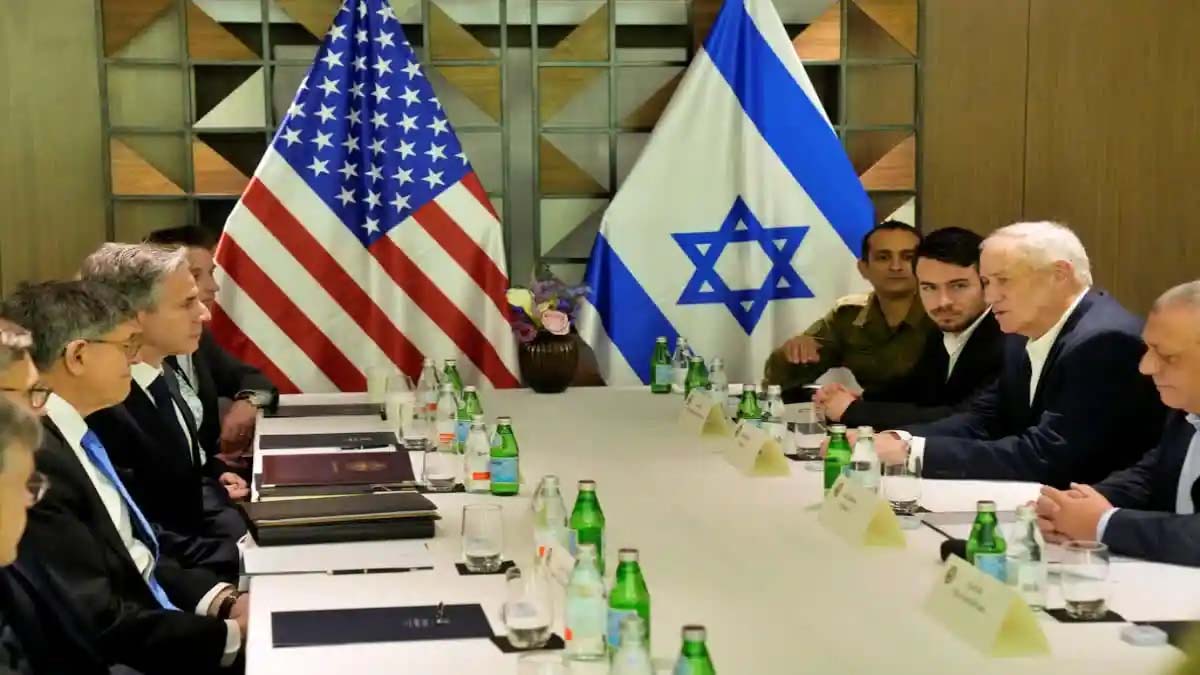Tel Aviv, Israel: Departing the Middle East on Thursday, U.S. Secretary of State Antony Blinken left behind a noticeable rift between the United States and Israel, arguably the most pronounced since Israel initiated its conflict with Hamas in Gaza back in October.
Concluding his fifth Mideast trip since the eruption of the conflict, Blinken returned to Washington after encountering what could be deemed a virtual rebuff from Israeli Prime Minister Benjamin Netanyahu. Netanyahu asserted that the war would persist until Israel achieves complete triumph, seemingly dismissing outright any response from Hamas regarding a proposed cease-fire plan.
While tensions between Israel and its primary international ally, the United States, have been palpable for months, Netanyahu’s public dismissal of a plan deemed meritorious by the U.S. accentuated the existing divide.
However, despite this discord, Blinken and other U.S. officials express a lingering optimism, believing progress can be achieved in their primary objectives. These include enhancing humanitarian conditions for Palestinian civilians, securing the release of hostages held by Hamas, preparing for post-conflict Gaza, and preventing the war’s escalation.
Blinken’s optimism draws from his prior four post-October 7 visits to the Middle East. Though lacking immediate visible successes, these visits yielded limited yet significant enhancements in humanitarian aid delivery and a weeklong cease-fire in November, during which numerous hostages were released.
“Clearly, there are elements in Hamas’ response that are absolute non-starters,” remarked Blinken regarding the group’s reaction to a cease-fire and hostage release proposal endorsed by Egypt, Qatar, the U.S., and Israel last month.
“But, at the same time, we discern room to pursue an agreement,” added Blinken on Wednesday evening. “These are always negotiations; it’s not a binary outcome. There’s inevitably a back-and-forth.”
However, just before Blinken’s statement, Netanyahu directly criticized the Hamas response, deeming it “delusional” and asserting Israel’s commitment to achieving “absolute victory” over the militant group, regardless.
Complicating Blinken’s position, Netanyahu also seemed to dismiss concerns from the U.S. and others about expanding Israel’s military operations in southern Gaza, specifically in Rafah, the region on the Egyptian border to which over a million Palestinians have fled.
“On all my previous visits here and nearly every day in between, we have urged Israel in tangible ways to enhance civilian protection, provide more assistance to those in need. Over the past four months, Israel has taken significant steps in that direction,” noted Blinken. “Yet, the toll that its military operations continue to exact on innocent civilians remains excessively high.”
Netanyahu additionally called for the dismantling of UNRWA, the UN agency for Palestinian refugees, the main distributor of international assistance to Gaza. This call stems from alleged hostility toward Israel and accusations that a dozen of its employees participated in the October 7 Hamas attack that triggered the war.
While the U.S. and other donor nations have suspended new assistance to UNRWA pending a U.N. investigation into the allegations, Blinken maintains that the agency’s role is crucial for delivering much-needed humanitarian supplies to Gaza.
Appealing to Netanyahu and other Israelis still grappling with the aftermath of the Hamas attack, Blinken urged against allowing vengeance to dictate their ongoing response. “Israelis were dehumanized in the most horrific way on October 7,” he said. “And the hostages have been dehumanized every day since. But that cannot be a license to dehumanize others.”
Blinken arrived in Israel shortly after receiving the Hamas counter-proposal to the framework cease-fire agreement presented late last month. This proposal outlines a three-phase plan to de-escalate the conflict. Both Qatar’s prime minister and Blinken, in Qatar on Tuesday, acknowledged the promise of the proposal as a starting point for further negotiation.
Additionally, Blinken highlighted Saudi Arabia’s interest in normalizing relations with Israel, contingent upon the conclusion of the Gaza war and the establishment of a clear, credible, and time-bound pathway to an independent Palestinian state. “We remain committed to pursuing a diplomatic path to a just and lasting peace, and security for all in the region, notably for Israel,” emphasized Blinken in Tel Aviv. However, Netanyahu opposes the creation of a Palestinian state and insists on Israel maintaining open-ended security control over Gaza.




